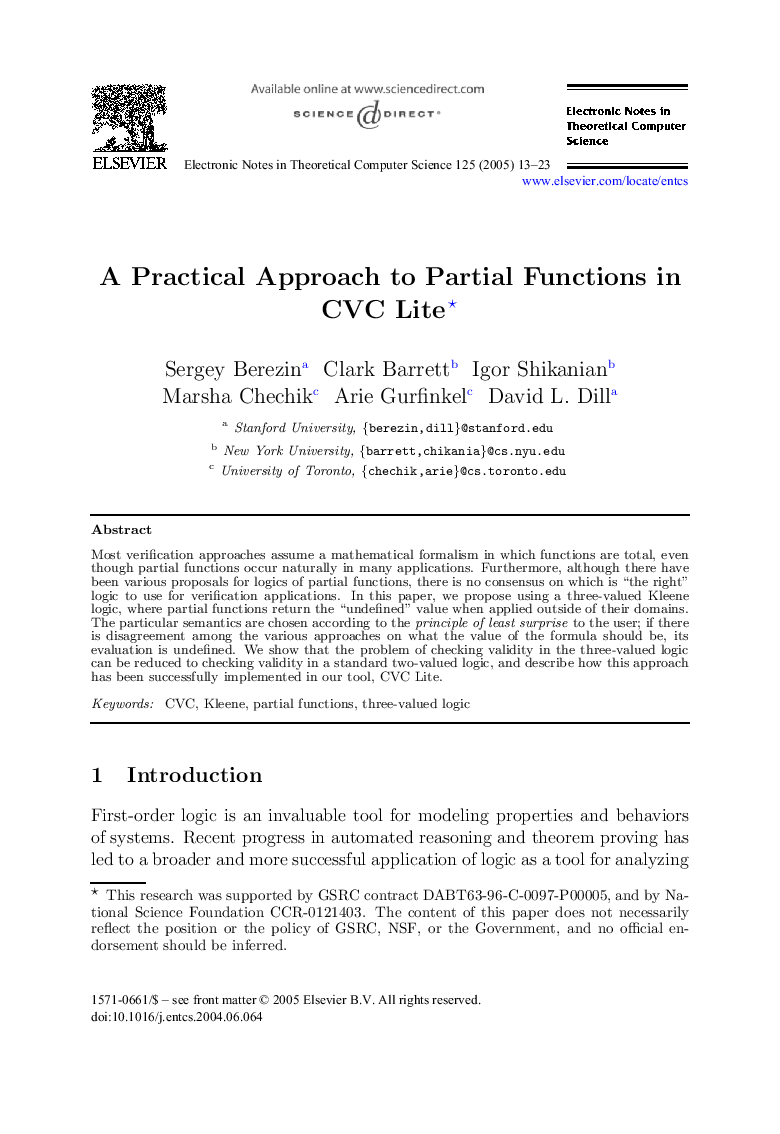| Article ID | Journal | Published Year | Pages | File Type |
|---|---|---|---|---|
| 10328953 | Electronic Notes in Theoretical Computer Science | 2005 | 11 Pages |
Abstract
Most verification approaches assume a mathematical formalism in which functions are total, even though partial functions occur naturally in many applications. Furthermore, although there have been various proposals for logics of partial functions, there is no consensus on which is “the right” logic to use for verification applications. In this paper, we propose using a three-valued Kleene logic, where partial functions return the “undefined” value when applied outside of their domains. The particular semantics are chosen according to the principle of least surprise to the user; if there is disagreement among the various approaches on what the value of the formula should be, its evaluation is undefined. We show that the problem of checking validity in the three-valued logic can be reduced to checking validity in a standard two-valued logic, and describe how this approach has been successfully implemented in our tool, CVC Lite.
Related Topics
Physical Sciences and Engineering
Computer Science
Computational Theory and Mathematics
Authors
Sergey Berezin, Clark Barrett, Igor Shikanian, Marsha Chechik, Arie Gurfinkel, David L. Dill,
